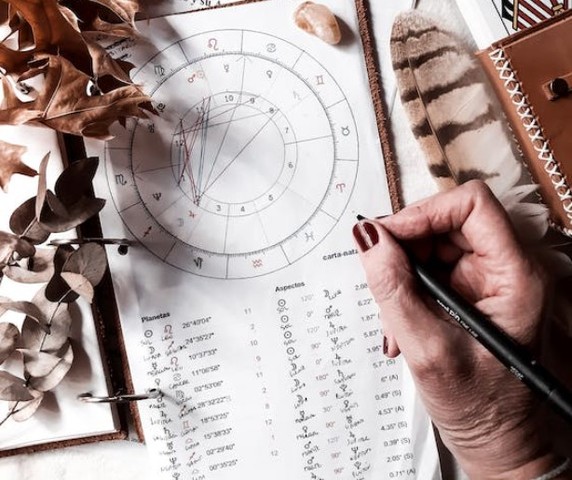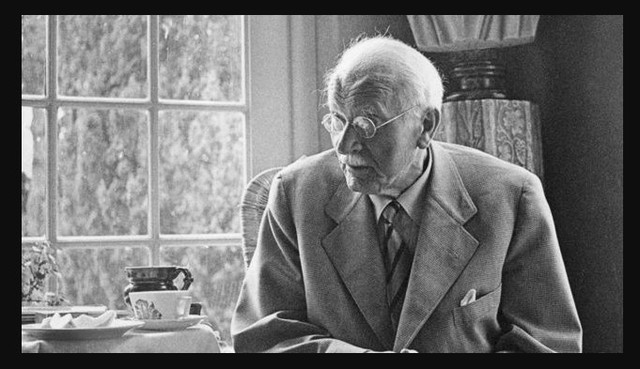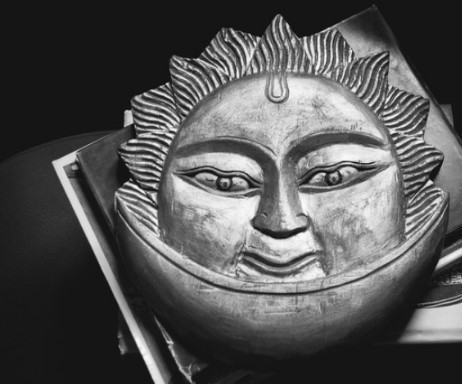Did you know that there is a particular connection between these two fields of study of life? Find out right now in the following article.
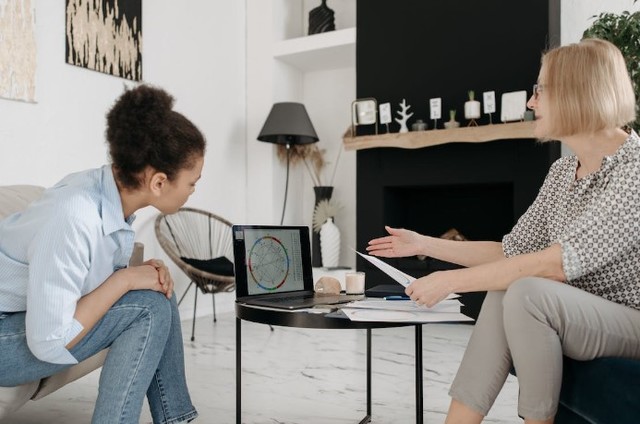
Do you believe much in astrology or don't even pay attention to it? At some point in recent history, we humans went from 'we can finally be clear with our emotions' to 'I have to browse Instagram for four hours straight to escape the dreary reality'. But no matter the era, humanity has looked to the stars for answers and solace.
Since the dawn of time, cultures around the world devised ways to relate their daily lives to the movement of the stars, planets and moon. The ancient Greeks believed that events on Earth (birth, for example) were influenced by the arrangement of the stars in the sky at that precise moment in time.
Jyotisha, as the Hindu astrological tradition is known, studied how certain times of the year could be favorable or unfavorable for certain actions, and it was even claimed that certain events, such as eclipses, were the work of 'evil spirits'.
A few centuries later, industrialization and institutionalized religions served to discredit these practices, and they were thus stripped of any formal credibility. However, this did not prevent them from remaining very popular around the world, and it is clear why: As difficult as they are to prove, they are equally difficult to dismiss. There is always some truth in them.
Ads

What is the relationship between astrology and psychology?
In fact, the myth-making and fantastic thinking of astrology speaks to our inherent human need to narrate and seek symbolism, and it is from our indomitable unconscious psyche that these stories and symbols arise.
In the early 20th century, when science and faith were beginning to divide, Swiss psychiatrist Carl Jung set out to investigate how the two could be connected and developed an entire theory.
It would be wrong to say that Carl Jung discovered the connection between astrology and psychology, just as it would be wrong to say that Columbus discovered America. The connection was always there. What Jung did, however, was to formalize it as a field of study. Throughout his career, he explored astrology, alchemy and religion. He talked to priests and pastors, traveled to India to study yoga, and was especially fascinated by mythology.
Eventually, he reconciled these seemingly disparate fields of study with psychology and brought out those intricate and ancient connections between the stars, our stories and ourselves in the form of analytical psychology.
Jung himself often described astrology as 'the big sister' of psychology', In a sense, the psychology of antiquity'.
What appealed most to Jung is that he saw all aspects of the psyche (from our admirable traits to our deepest fears and most destructive flaws) as valid parts of our individuality. Whereas religion moralizes and pathologizes, Jung's depth psychology seeks only to understand.
Jung described neurosis as 'an offended god,' describes Balan. 'Jung himself was both mystic and scientist. He had to reconcile these two aspects of himself, and his psychology arises from that. It all grew out of his own fundamental contradictions.'.
Ads
Archetypes in Psychology
In fact, Jung's archetypal principles arise from a pair of opposites: 'yin and yang', which have traditionally been expressed as 'masculine' and 'feminine'. The first corresponds to logos, or logic, the practical and scientific approach, characterized by ambition and conquest.
The 'feminine' side corresponds to mythos, or symbolism and storytelling, which aligns with emotions, community and relationships. 'Both should play an equal role in our psyche,' the author adds.
'When we go too far to one extreme, we tend to project that imbalance outward' This explains why unbridled technological advancement, a consequence of 'yang' energy has destroyed our environment and is slowly degrading the quality of our emotional well-being: 'The feminine view is about interrelatedness and interdependence, while the masculine is about conquest. Neither is right or wrong, it is about achieving a balance'.
Ads
What is Jungian psychology?
The aim of Jungian psychology is to bring these unconscious impulses to the surface. Jung himself described them as archetypes, inspired by the archetypes of ancient mythologies, and described neuroses as conflicts between these archetypes, a kind of war between gods.
Like the gods of ancient mythology, the voices of our psyche will not be easily repressed or controlled. They will make their presence felt. Silenced in one way, they will re-emerge in another, as in a game of whack-a-mole that cannot be won. Jung suggested that it was far better to listen to what the voice has to say than to let it scream at you through an unpredictable and uncontrollable impulse.
'Listen to your own psyche,' Balan advises, 'why did this particular event or this particular person upset me so much, why did I have this kind of disproportionate reaction, why did this particular symbol in my dream evoke such a response?'
That is the core of both Jungian astrology and psychology: recognizing the wholeness of each individual. 'The goal is not perfection or an arbitrary idea of goodness, but wholeness,' says Balan. 'If we approached ourselves and our patterns with more curiosity, rather than trying to fix them once and for all, we could bring the ego into a more balanced relationship with all that is unconscious.'
What does my inner critic tell me?
There are times in our lives when unconscious impulses conflict with our conscious goals or desires. So someone with great career ambitions may find themselves procrastinating on important projects: their inner perfectionist may be censoring them, telling them that nothing they do will ever be good enough before they even start.
Or it could be why you find yourself fighting in seemingly perfect relationships: perhaps an inner critic is telling you that you don't deserve love or companionship.
'I think ultimately astrology is a mirror,' says Balan. 'It's like a cosmic commentary, telling you the meaning of this time, the quality of this time and what it's trying to provoke in you. If you're intrigued by it, there's so much more to explore. It's like an infinite black hole that will keep you busy for a few lifetimes.'
Ads
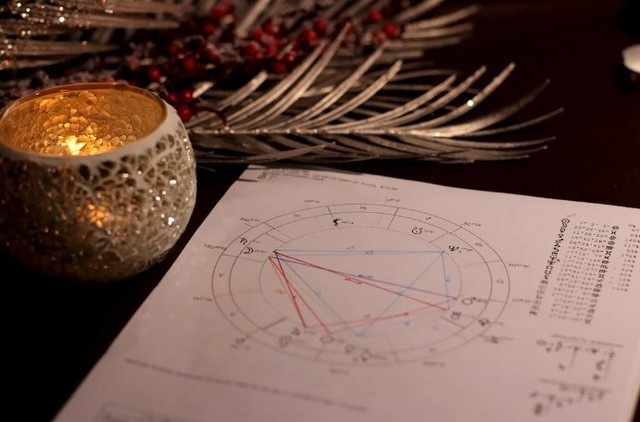
Although astrology and psychology are distinct fields, they are intrinsically related. Astrology provides us with a symbolic language to explore our psyche and understand our individuality.
Psychology, on the other hand, helps us unravel the unconscious impulses and inner conflicts that influence our behavior and emotional well-being. The work of Carl Jung has been instrumental in establishing a connection between these two fields and has demonstrated how the study of the stars and the exploration of the human psyche can complement and enrich each other.
If we approach astrology and psychology with curiosity and an open mind, we can gain a deeper perspective of ourselves and the world around us.
The relationship between astrology and psychology is complex and fascinating. While astrology cannot be considered an exact science, it has demonstrated its influence on how we relate to the world and how we perceive ourselves.
Psychology, on the other hand, provides us with tools to understand and explore our psyche, including the unconscious aspects that can be revealed through astrological interpretation. Both disciplines have the potential to complement and enrich each other, offering a more complete and profound perspective of the human experience.
You may be interested too
The Emotional Calendar 2026: Months Of Greatest And Least Attraction
Texto inspiracional sobre el artículo que pueda ser compartido con un fondo o letras llamativas ej. "La Tierra contiene al agua, y revive con la fluidez y sensibilidad que el aporta el agua, surgiendo en mil brotes"


